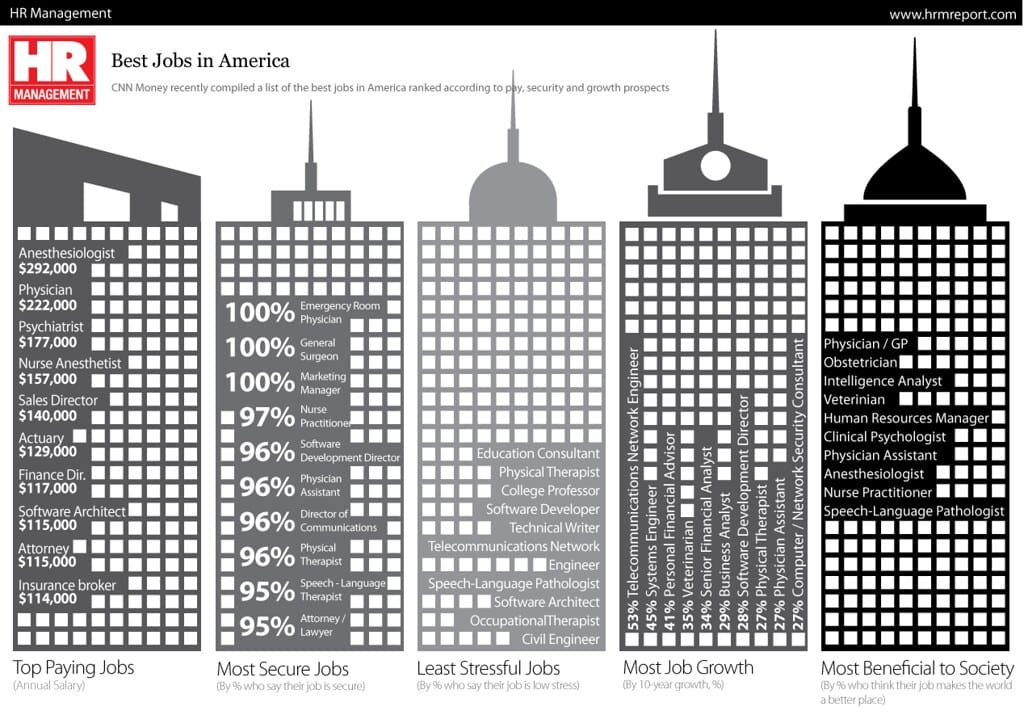There comes a time when every employee needs to assess their value. If you provide value for an employer, it never hurts to ask for what you’re worth. But do it right. Here are ten tips for negotiating a higher salary.
10. Research Your Market Value

It’s critical to research your industry and job position to determine the price people are willing to pay for the type of work that you do. Keep in mind that salary ranges are affected by geographic location and market demand in a particular region. Experience level is also a major factor.
9. Consider Additional Benefits

A higher salary should not be your only objective. You should consider the benefits and their value as well. For example, employer-matching 401(k) contributions. Perhaps flexible hours or additional vacation time are good additions or alternatives to a higher salary. Before you meet with the hiring manager, try to gain a sense of the additional benefits available.
8. Craft Your Pitch

Once you have identified the target salary and benefits you seek, start crafting the pitch you will make to your current or prospective employer. To help create your pitch, start with a one-page sheet that highlights your skills, qualifications, and best achievements. Base your argument on market value. Highlight the pain points you can solve for your employer.
7. Rehearse Your Pitch

Once you have your pitch worked out, make time to rehearse your pitch out loud several times before your meeting with your current or prospective employer. Practice with a friend or family member and have them give you feedback on your delivery, as well as identify ways to improve. When performing alone, record yourself and look for ways to improve.
6. Set a Strategic Date and Time

The best strategic time to schedule a negotiation depends on whether you are asking for a raise in your current role or are seeking a new job. For a current job, schedule negotiations when you are best positioned to attain your target pay. For a new job, schedule a time after you have received and evaluated the compensation package.
5. Be Confident

Confidence expresses that you value yourself and your abilities and are assured you can deliver for your employer. Do this: Keep an upright posture throughout the negotiation. Maintain eye contact. Speak in a clear and deliberate manner. Emphasize key points with clear hand gestures. Maintain a sense of openness by keeping your arms crossed and your chest open.
4. Remain Kind

Throughout the negotiation, do this. Remain kind, with a positive attitude, even during disagreements. Thank your employer for taking the time to talk with you. Ask about their day and well-being. Smile when appropriate. Reiterate your desire to work with them and your interest in the position. Maintain a calm tone throughout, even if a disagreement arises. Practice active listening.
3. Start High and Negotiate Down

Most employers will counter any pay request. Therefore, open the negotiations with a salary that is higher than your target amount. That way, you have room to negotiate down. Nonetheless, you want to be the first one to suggest a number. This creates an “anchoring effect” and allows you to dictate the terms of the conversation around that price point.
Read More: The Benefits and Career Opportunities of Psychology Degrees
2. Be Firm but Remain Flexible

Don’t fold right away when your employer shoots down or counters your salary request. Instead, remain firm. Encourage them to meet your target by offering justifications. Likewise, remain flexible toward crafting solutions that will work for both of you. Remember: You are trying to resolve a conflict. Remain open and express willingness to make concessions in some areas.
Read More: These High Paying Jobs Are in Long-Term Demand
1. Focus on Your Future

After negotiations, you’ll either be successful or not. Perhaps you’ll get some of what you wanted but not all. If not, focus on your future. You’ll need to consider whether the job meets your personal, professional, and financial goals. Only you can decide if you should continue seeking. Learn from the experience and be better prepared for the next time.
Read More: How Effective Leaders Welcome New Employees








